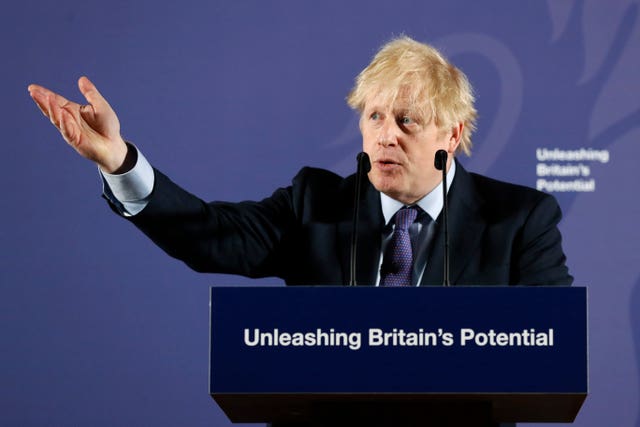Barnier sets out Brussels’ position on post-Brexit deal with UK
The EU’s proposals on fisheries, a level playing field on standards and a role for the European Court of Justice could be flashpoints.

French and Spanish trawlers would be allowed to continue fishing in British waters under the European Union’s plans for a deal with the UK.
Other measures set out in the European Commission’s draft negotiating mandate include a call for “robust commitments ensuring a level playing field for open and fair competition” – aimed at preventing the UK slashing standards or subsidising British firms.
Commission president Ursula von der Leyen said “time is short” to reach a deal by the end of the year, adding “we will defend EU interests, and the interests of our citizens, right until the end”.
The December 31 deadline will come into play because Boris Johnson has ruled out asking for an extension.
Brussels’ chief negotiator Michel Barnier said all aspects of the envisaged agreement would not be completed within 11 months.
Mr Barnier said an agreement on fisheries and the “level playing field” – both elements where there are likely to be clashes with the UK – were “inextricably linked” to a trade deal.
The draft mandate calls for reciprocal access for UK and EU vessels to each other’s waters and markets.
The position is explicitly set up to protect the livelihoods of EU fisheries workers.
“It should aim to avoid economic dislocation for Union fishermen that have traditionally fished in the United Kingdom waters,” the document said.
Mr Johnson said that under any agreement “British fishing grounds are first and foremost for British boats”.

The level of access that the UK will get to European markets under its trade deal will be linked to how closely it aligns with EU standards.
At a press conference in Brussels, Mr Barnier said the more the UK was prepared to maintain common standards with the EU, the higher quality access it would get to EU markets.
“This will be up to the UK to decide. Will it continue to adhere to Europe’s societal and regulatory model in the future or will it seek to diverge?” he said.
“The UK’s answer to this question will be fundamental to the level of our ambition of our future relationship. The UK must know this.”
But setting out his position the Prime Minister said: “There is no need for a free trade agreement to involve accepting EU rules on competition policy, subsidies, social protection, the environment, or anything similar any more than the EU should be obliged to accept UK rules.”
Mr Barnier said that the proposed security partnership between the UK and EU would depend on the European Court of Justice playing a full role – something likely to be rejected by Mr Johnson and Brexiteers.
“Where a partnership is based on concepts derived from European law, obviously the European Court of Justice should be able to continue its role in full,” he said.
The terms of any deal would not apply to Gibraltar, instead separate agreements would have to be reached – with Spain having a veto over arrangements relating to the territory it claims sovereignty over.
Mr Barnier said: “There will be a separate, parallel table and the Kingdom of Spain will have to be involved and give its agreement to all the elements in a specific agreement on Gibraltar.”
In a sign that this too could be yet another flashpoint in the negotiations, Mr Johnson told reporters: “The UK will be negotiating on behalf of the entire UK family and that certainly includes Gibraltar and the sovereignty of Gibraltar remains, as everybody knows, indivisible.”





